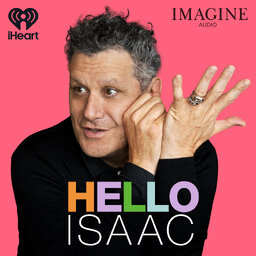Renowned Casting Director, Bernie Telsey
Isaac Mizrahi chats with casting director, Bernie Telsey (“The Color Purple”, “Only Murders in the Building”) about why he can’t believe movie stars email him sometimes, how a teacher changed his life, the sacrifices he made for his career and more. Plus, he shares invaluable tips for actors and performers about auditions.
Follow Hello Isaac on @helloisaacpodcast on Instagram and TikTok, Isaac @imisaacmizrahi on Instagram and TikTok and Bernie Telsey @bernardtelsey and @thetelseyoffice.
(Recorded on November 1, 2023)
In 1 playlist(s)
Hello Isaac with Isaac Mizrahi
Isaac Mizrahi is an expert - at almost everything! He’s an iconic fashion designer, actor, singer, …Social links
Follow podcast
Recent clips

Emmy-Winning Actor and Director, Pamela Adlon
51:37

Interior Designer & TV Host, Jeremiah Brent
49:51

Podcast Host & Crooked Media Co-Founder, Jon Lovett
50:53
 Hello Isaac with Isaac Mizrahi
Hello Isaac with Isaac Mizrahi